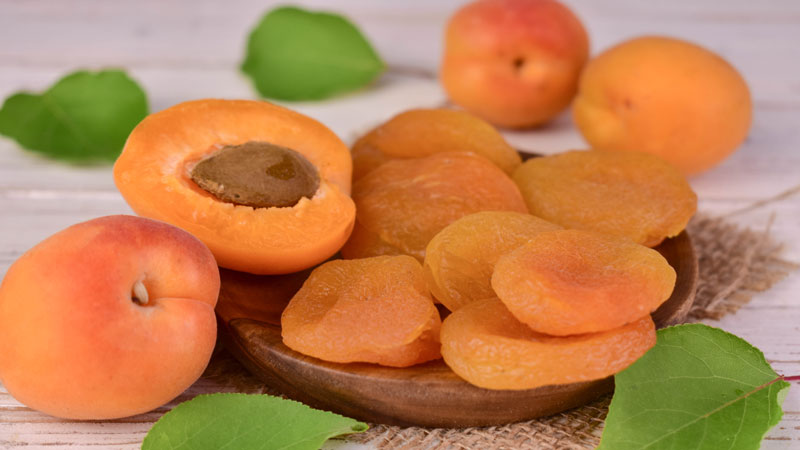
Apricots make such a great treat! We can enjoy them fresh during the spring and summer, or dehydrated all year round. Either way, you will be getting a nice boost of fiber, vitamin A, vitamin B3 or niacin, and vitamin E. Plus, apricots are a great source of potassium too, and copper.
Some of the great benefits of this sweet and tart fruit include supporting your heart, brain, bones, immune system, eyes, skin, hair, connective tissue, genes, cells, and metabolism.
As with any other fruit, eating it whole and fresh is the recommendation. If you eat it dried, the recommended portion is 1/4 c to avoid getting too much sugar without the fiber and water to help delay absorption.
You may be wondering if sulfured dried apricots are safe. Since sulfur dioxide is applied to prevent oxidation, they definitely look and taste better than the unsulfured alternative, but there are concerns about high levels of sulfur dioxide affecting male fertility in the long run. This is based on a study done with rats, but to err on the side or caution, if you choose to eat sulfured dried apricots, do it sparingly and in moderation.
Sulfur oxide may also induce asthma in some people. If you buy unsulfured apricots, you’ll notice that the color is brown and that the longer you keep them, the darker brown they will get. The flavor is also different.
Check out our personalized apricot nutrition calculator to learn more about all the nutrition you and your loved ones can get from adding apricots into your diets!
Apricot Nutrition Calculator
Use our personalized nutrition calculator to discover the percentage of daily nutrition needs you and your family can get from eating apricots.
Nutrition needs vary according to age, sex, and whether women of reproductive age are pregnant or breastfeeding. Fill out the form below for yourself and for your family members to get personalized results.*
* Calculated as a percentage of the Recommended Daily Allowances (RDAs) as established by the U.S. Department of Agriculture and the U.S. Department of Health and Human Services. Based on nutritional information provided by the U.S. Department of Agriculture as an average of multiple apricot samples.
References
